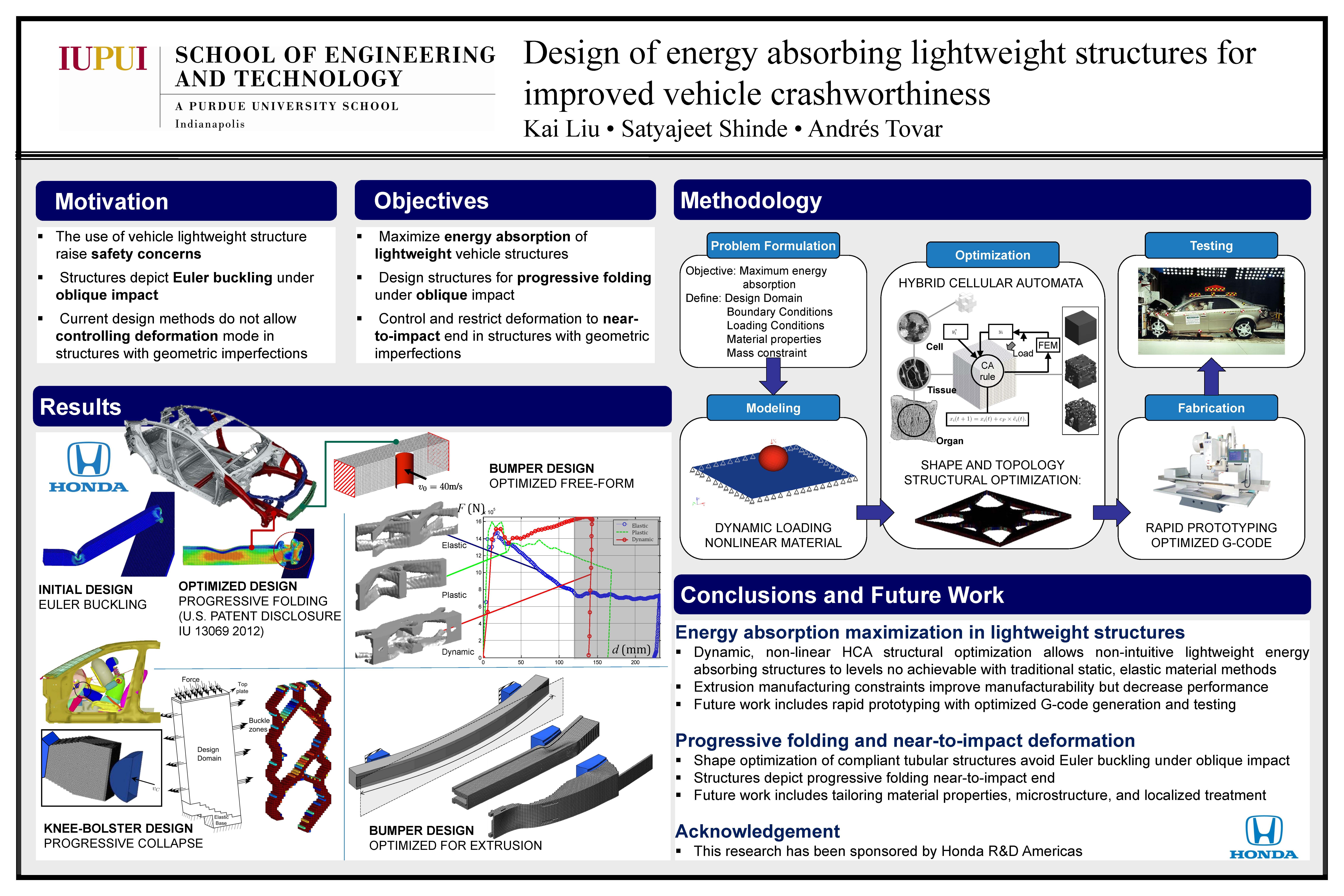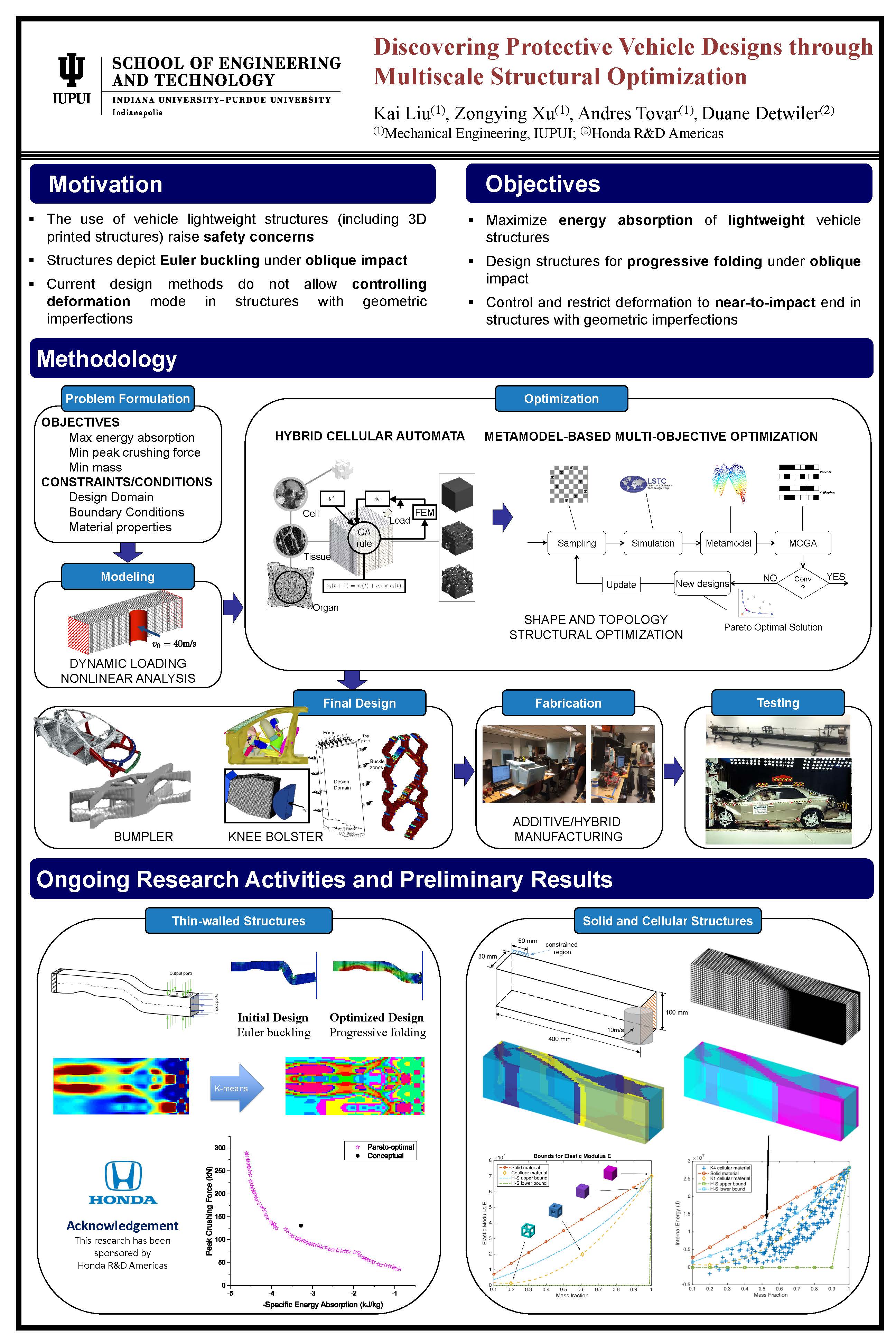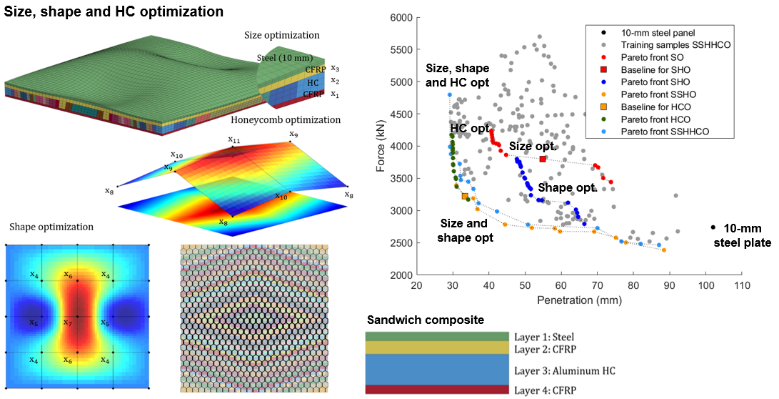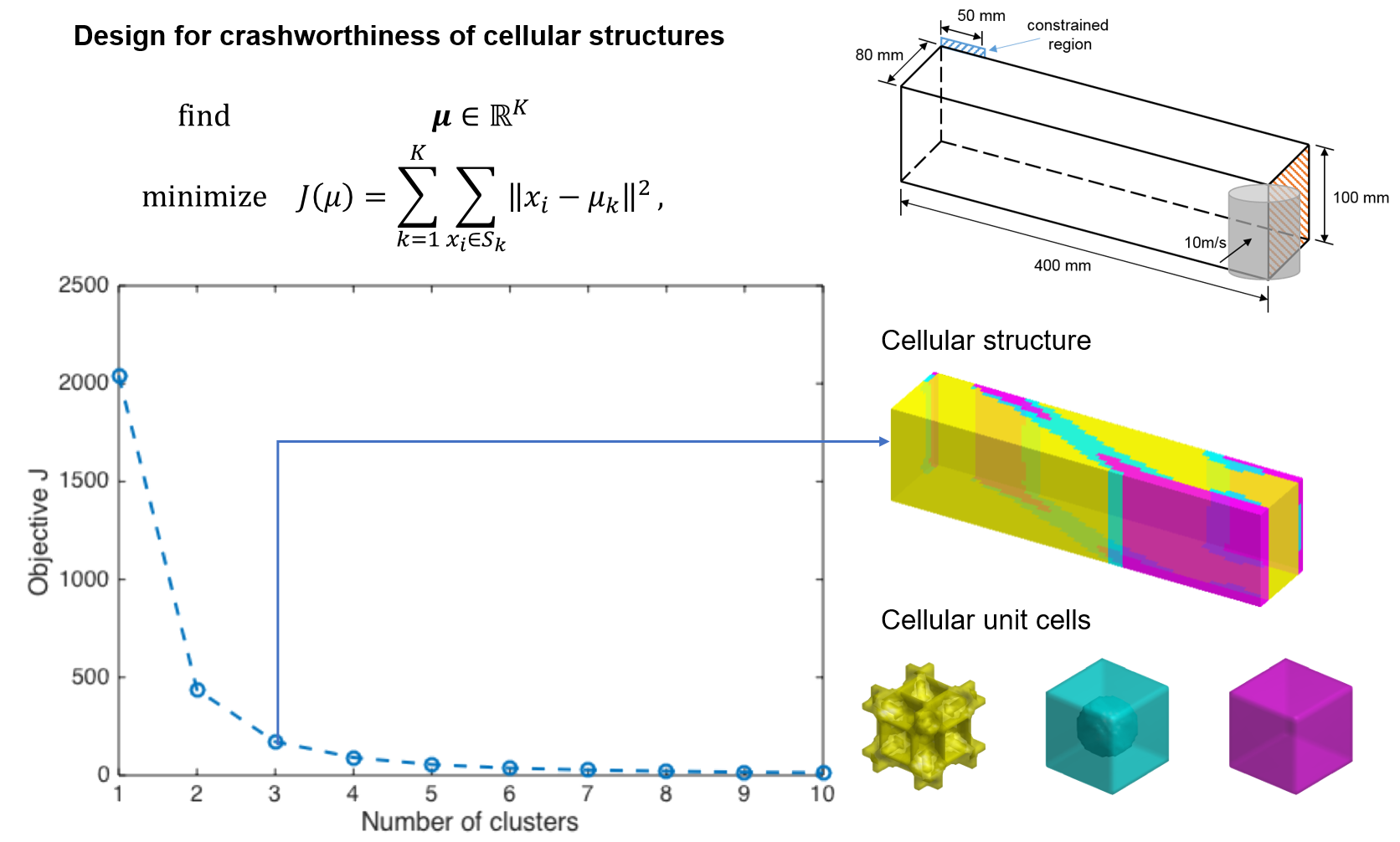
Honda R&D Americas and Indiana University-Purdue University Indianapolis (IUPUI) have developed a computational design algorithm for tailoring the deformation of thin-walled structures. This design algorithm is part of a general toolkit referred to as topology crash optimization (TCO) that comprises topology (material distribution), topography (shape), and topometry (thickness) optimization methods—topometry optimization is of particular interest for the design of thin-walled structures. TCO methods on tubular structures rely on the ability of a compliant mechanism to transfer displacement and/or force from an input to desired output port locations. The output port response triggers progressive folding mitigating the natural Euler-type buckling effect. Biologically inspired hybrid cellular automaton (HCA) method is used to drive the design process by uniformly distributing mutual potential energy (MPE) using a control strategy. The result is a conceptual, non-intuitive design that promotes progressive folding.



